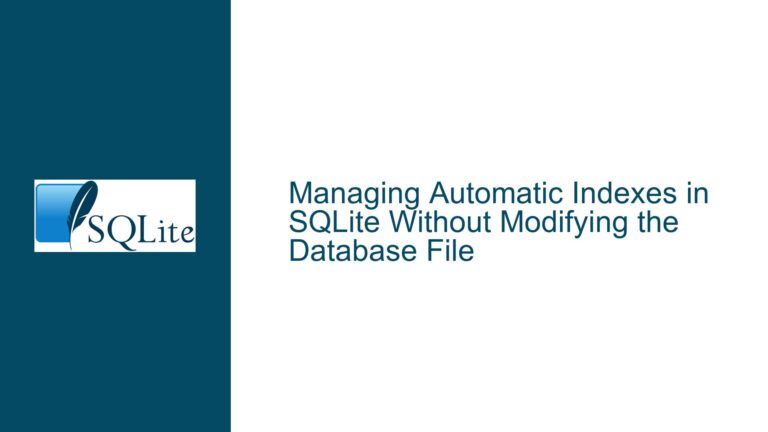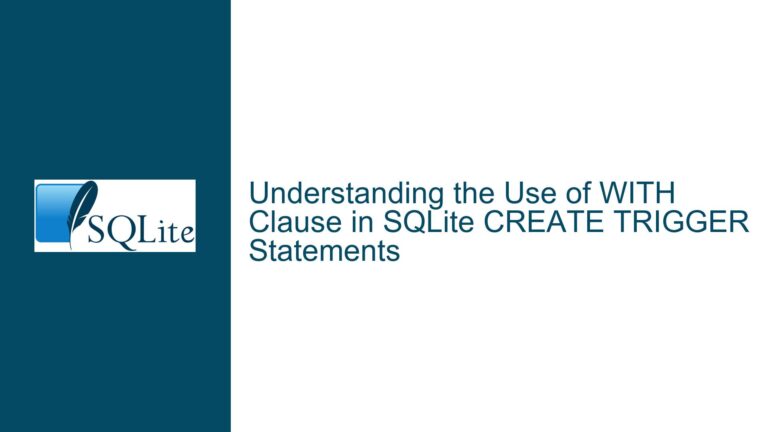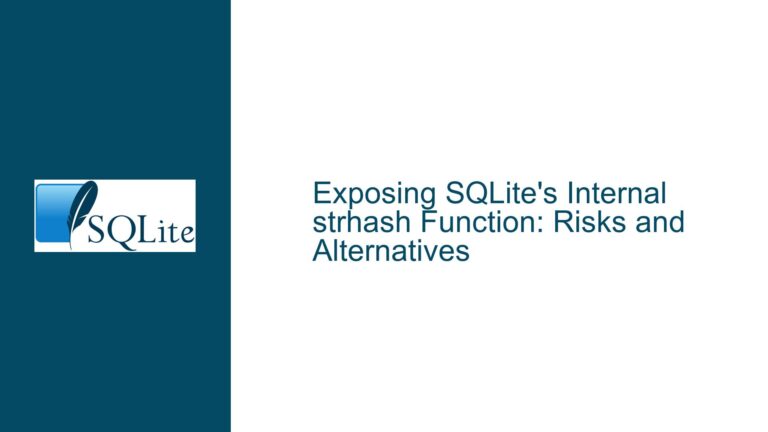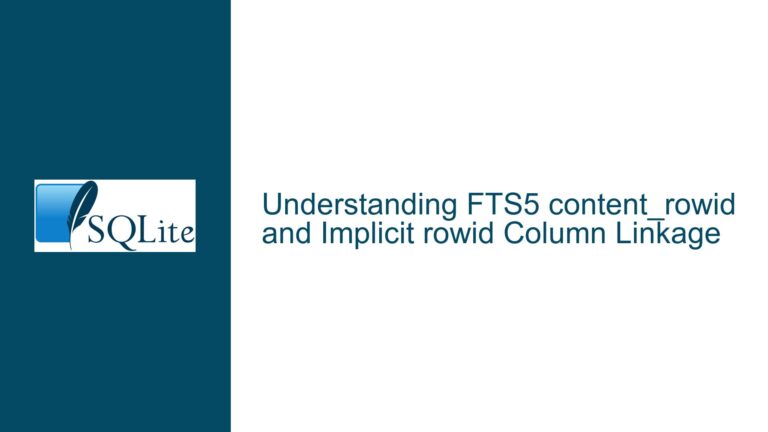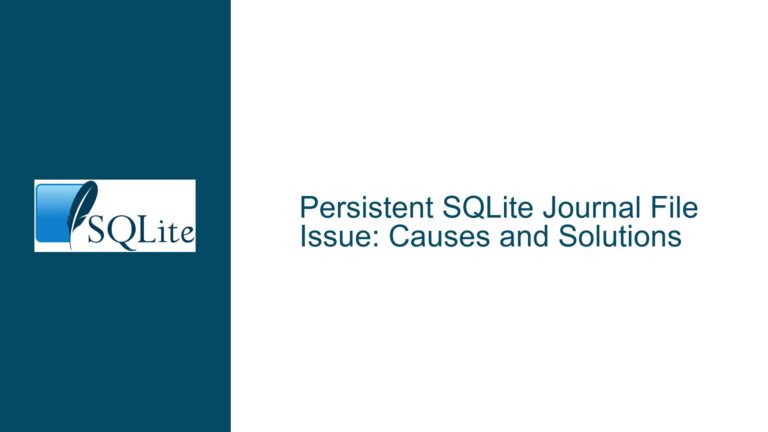Managing Automatic Indexes in SQLite Without Modifying the Database File
Automatic Index Creation Behavior and Its Impact on Read-Only Workflows Issue Overview SQLite’s query optimizer automatically creates transient indexes—referred to as "automatic indexes"—when executing queries that would benefit from an index but none exists on the targeted columns. These indexes are generated to improve query performance for JOIN operations, WHERE clauses, or ORDER BY clauses…
